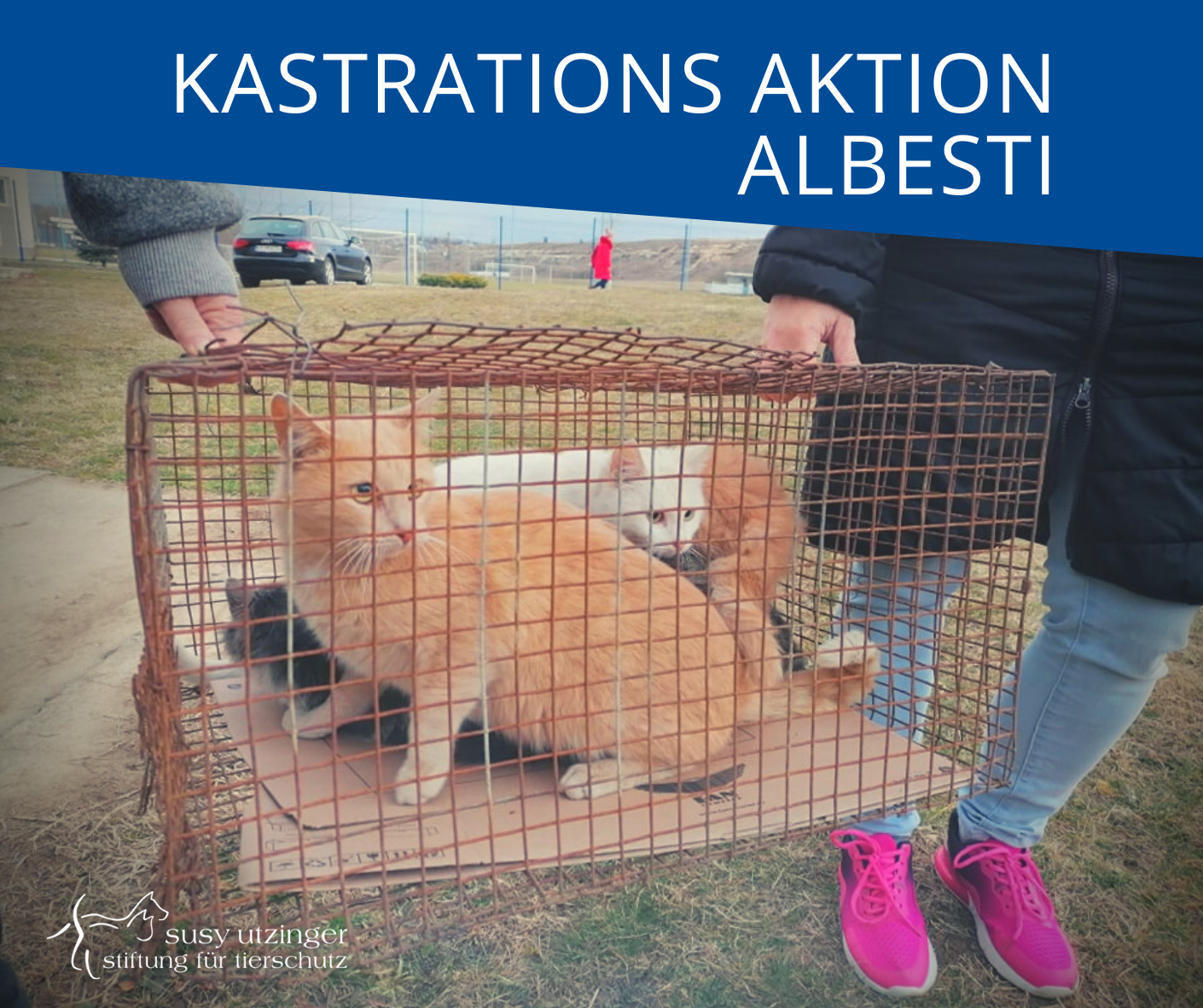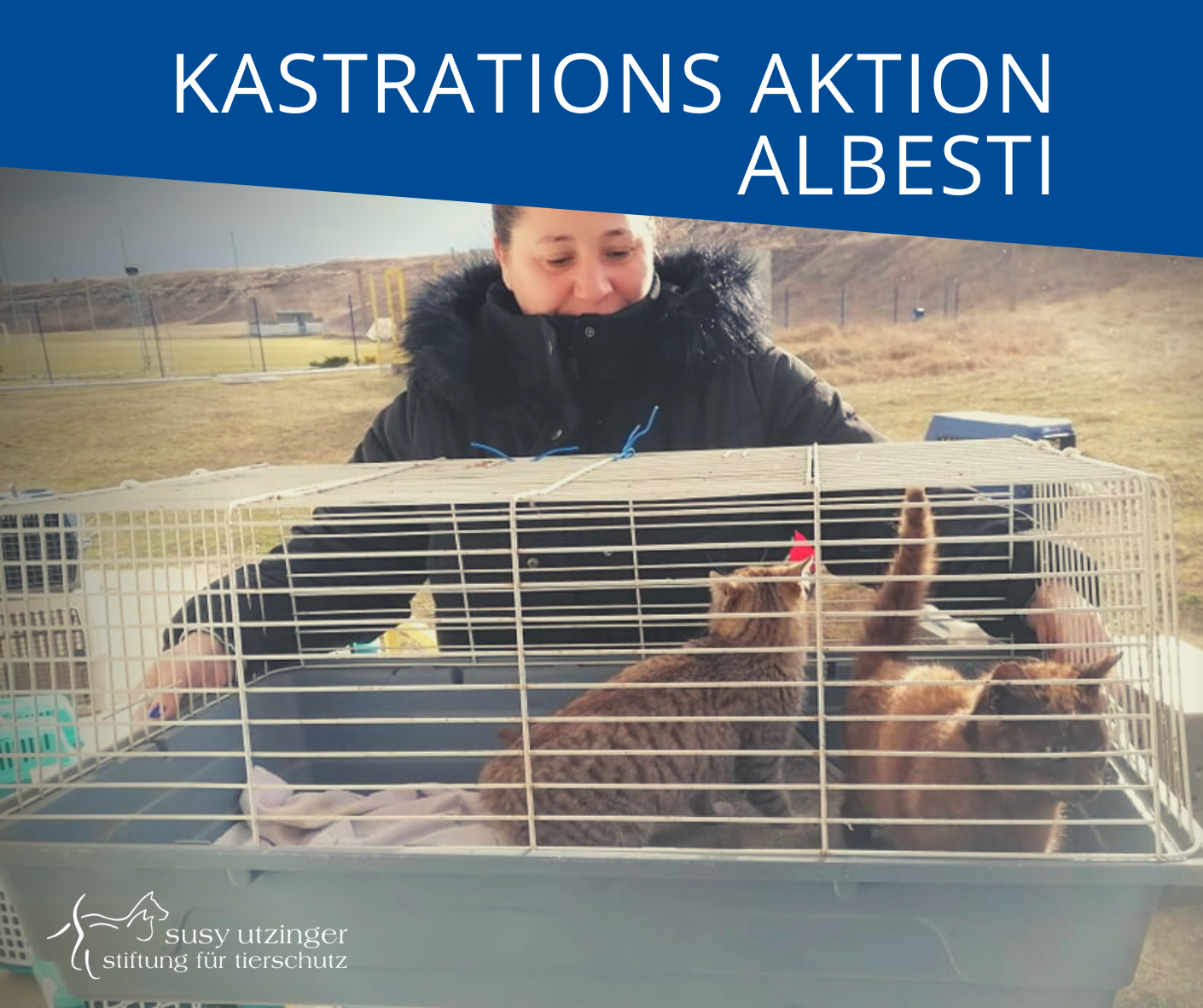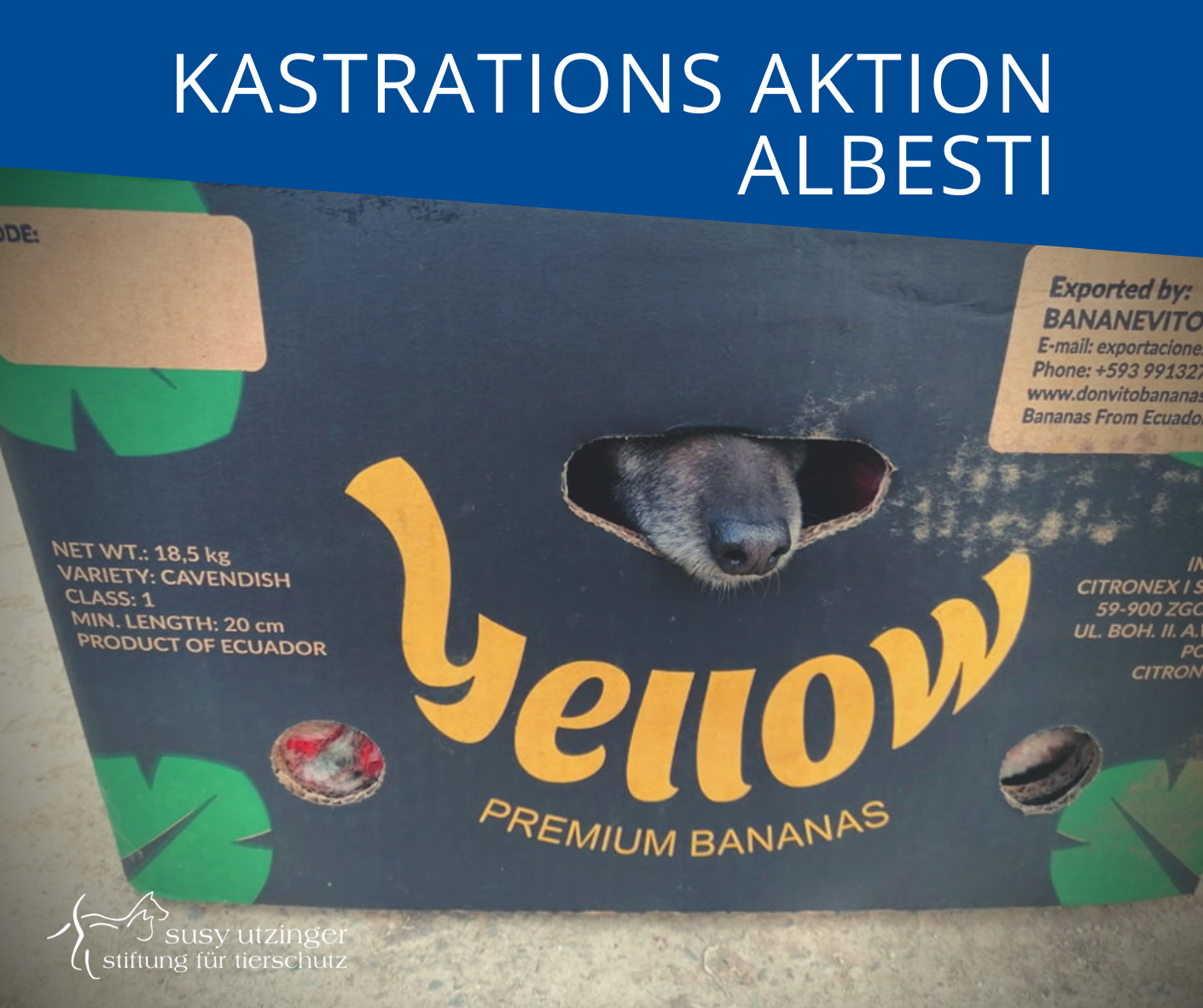The castration campaign in Albesti from February 18-20, 2022 was our first visit to this special place in the coastal region of Constanta.
The target was high: 216 surgeries within three days.

The start was a bit rough. The local authorities did not let us into the premises until the morning of the first day of the campaign - where we discovered that they were being used as a storage room - so we had to move around first. The first castration of the day therefore took place only around noon.
The weather was windy, cold and rainy. Weather warnings had been issued for the area during the entire three days of the action.
Nevertheless, many residents brought their animals - some in baskets, some in bags and some in wheelbarrows.
Our team also went out into the surrounding region, despite the hurricane weather, to capture as many animals as possible and help the owners and caretakers.

We were quite impressed that so many people showed up with animals - even unannounced. To help those as well, we worked hard.
The unplanned "guests" are not uncommon in coastal campaigns. In order to make our working days easier to plan in the future, we are working on improving communication with our volunteers in the field.
The first day therefore ended at around 10:30 pm.

The campaign team consisted of:
Dr. Irina Corbu-Rudnic,
Dr. Mircea Stefanache and their colleague George,
veterinary student Alex Tanasescu,
Veterinary Technician and our local contact Ale,
veterinary students Delia Lungu and Cosmina
and
Dr. Anca Cruceru from Medgidia
Maria, Alex and our prodigy Arianna, Elena with her friend Claudia and another friend lent a hand as volunteers.

Worth mentioning is the high number of female cats that were already in heat or even in the first month of pregnancy (out of about 63 days gestation). Therefore, we expect a massive increase of highly pregnant or freshly born cats until the end of March - which makes us worry about our possibilities to limit the number of animals that will be born this spring.
A sad fact:
Climate change is shifting and lengthening the mating seasons of cats and dogs.
Thus, the need for quick and sustained intervention increases because newborn kittens and puppies are often simply discarded or abandoned.
The risk of being run over or becoming victims of infections and other diseases is enormous - such a kitten has little chance of a warm, safe place or even a proper home. In addition, we were brought some wild-caught kittens that showed signs of cat rhinitis and which we would have operated on under ideal conditions. Unfortunately, we are not sufficiently equipped for such operations during our neutering campaigns. As in previous campaigns, we also had a case of an older female with mammary tumors that were removed from her during sterilization and a squamous cell carcinoma and a cellular carcinoma in a feral cat that we were unfortunately unable to treat as a result.
We are working with local volunteers to improve this situation so that we can act and treat such cases in the future.

14 wild animals were captured by our team in the surrounding area. Nearby is a larger stud farm. Locals have pointed out to us that there are about 200 animals in the horse stables and they are also constantly multiplying due to this protected environment. The organization of a campaign in the vicinity of the stud farm has been placed with the local authorities.

The dogs from the area are relatively trusting, we were able to catch some by hand.
Our colleague Alexandra Tanasescu rescued a cute male dog from the street in Albesti. He made a well-groomed impression, but despite asking, no one could be identified as the owner. So we brought him back to the SUST Orphan Animal Hospital Bucharest, where we are trying to give him a much better future - in a family that will take care of him, as the healthy 5-6 year old male deserves.

The second day of the campaign had a spectacular, intense end.
A cat that was brought in for neutering in the morning (without an appointment), and therefore was not entered for surgery until the evening as #94 of the day, escaped. The lady who brought him caused quite an uproar when she came in at 7pm and saw that her cat was yet to be operated on. She wanted to take him back home and when she tried to take him out of our cage, he ran away - into the gym next door - to which we had no access.
However, thanks to a "007-like" capture action of our team, the daredevil cat finally came to his surgery and could be returned safely to his owner late in the evening.

Overall, this was an intense campaign in which we lacked many of our medical supplies. Also, our team of volunteers was decimated as some of our veterinary students were taking exams and we also faced spatial difficulties that made it difficult for us to run efficiently in terms of surgical preparation and postoperative monitoring. Despite all the circumstances, we had no complications and all patients recovered well. We are also pleased that word of the positive results of our work is spreading among the population and that the information and education campaigns are also having an effect. Animals are now increasingly brought to the castration campaigns in safe cages and baskets, or at least with practical solutions such as baskets.

Also a workable solution: a gentleman brought his bitch over in a snugly padded wheelbarrow - he lovingly monitored his much-loved dog without interruption after surgery - and assured us, "She is my life."
